Facebook for iOS supports drafting posts offline, preview before sending
Facebook has unveiled a landmark release of its iPad and iPhone app with the release of Facebook for iOS 10.0. Despite the major version number change, however, new features are thin on the ground.
There are basically two major changes to speak off: support for drafting posts while offline, and the ability to now review posts before they’re sent. The update arrives as Facebook starts testing a new card-based feature similar to Google Now.
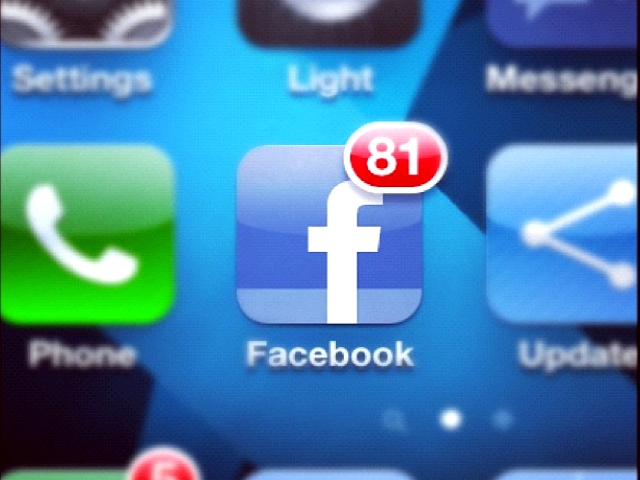
Microsoft, Apple and Facebook will inform users of data requests
Apple, Facebook and Microsoft are ready to empower users with more information regarding secret data demands in the shape of a new notification system that still won’t inform users when the agencies such as the National Security Agency request data.
The notification system will cover various police requests for email records and other online data that won’t be private unless a gagging order is approved by a court.
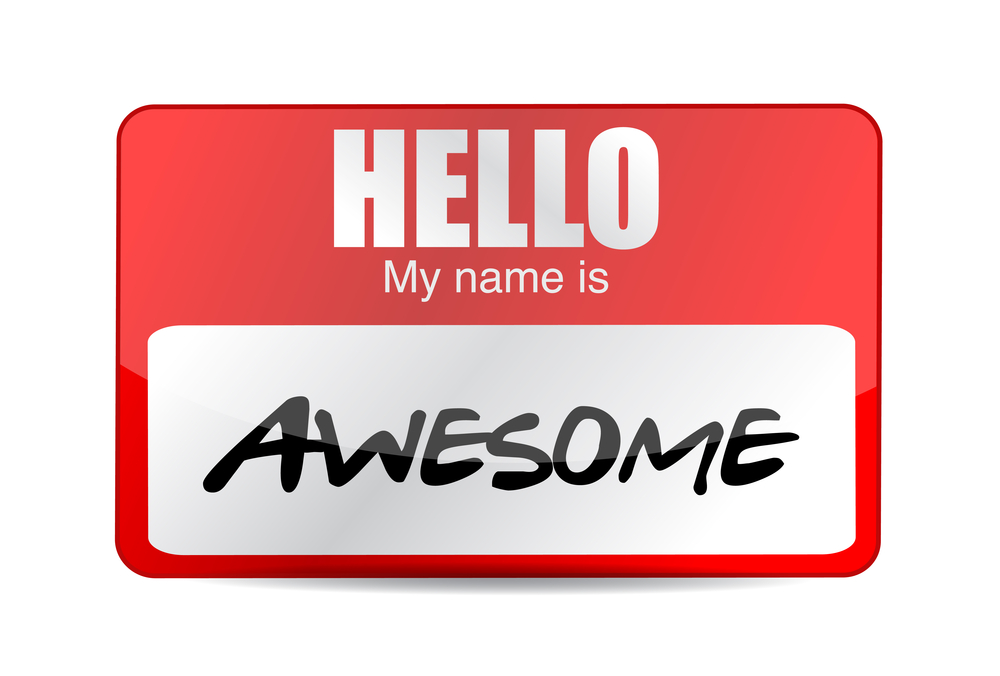
Google Plus is friggin' awesome -- don't you agree?
On April 24, the Google+ community lost a valuable promoter and leader. Vic Gundotra, head of Google's social media network, announced that he is stepping down and leaving the company. Mr. Gundotra deserves great applause, as he was in charge during the initial growth of the best social media network on the internet.
Yes, that's right, Google+ is the best -- it is friggin' awesome. It is better than Facebook. It is better than Twitter. Despite what the tech community may echo, the service is actually loved and adored by some, including myself. But OK, what makes Google+ so awesome? Here are some of my reasons.
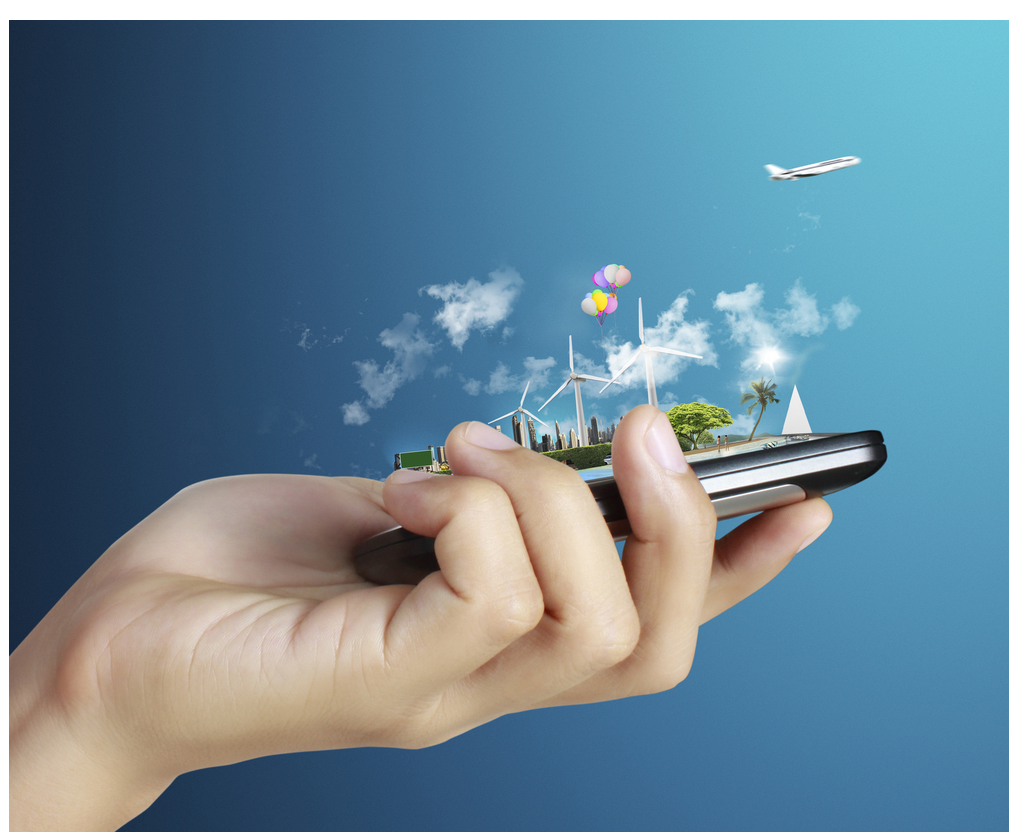
Unfair comparisons: Google and Facebook vs. messaging apps
This weekend, I came across an interesting post by Benedict Evans on "unfair but relevant" comparisons. While I agreed with everything he said, his focus was entirely on the hardware side of the equation. It may be just as relevant to compare today's hot mobile services to online service start-ups from the PC era.
The chart above compares the growth of Facebook's user base, since inception, to that of KakaoTalk and LINE. One disadvantage here is that we can only compare registered users for messaging apps to active users for Facebook. According to one estimate, 61 percent of LINE's registered users are active. If this proves roughly accurate for major messaging apps, KakaoTalk and LINE would still overshadow Facebook's user growth by a considerable margin. This is because PC-era start-ups like Facebook and Google operated in a much smaller playground as compared to today's mobile start-ups. But the "scale of mobile" has already been beaten to death. Does that necessarily mean that these companies also make more money?

Facebook drones won’t work for aerial Internet
Facebook, trying to be ever more like Google, announced last week that it was thinking of building a global ISP in the sky. Now this is something I’ve written about several times in the past and even predicted to some extent, so I’d like to look at what Facebook has said so far and predict what will and won’t work.
Longtime readers will know I’ve written twice before (here and here) about satellite Internet and twice about aerial Internet, too (here and here), so I’ve been thinking about this for over a decade and even ran some experiments back when I lived in Charleston. Oh, and of course I am building an electric airplane described here.

Mark Zuckerberg details Facebook’s plans to deliver internet to everyone
Internet is a basic human right, or so the United Nations tells us. To that end, companies like Google are testing such solutions as balloons to bring access to remote locations, while others are using alternative measures, such as satellites.
Facebook is going a bit further, apparently. An announcement from Mark Zuckerberg made me check my calendar to be double sure it wasn’t April 1st. The CEO details the experimental work being done by the company’s Connectivity Lab. "Today, we're sharing some details of the work Facebook's Connectivity Lab is doing to build drones, satellites and lasers to deliver the internet to everyone", Zuckerberg states in a Facebook post.

Keepin' it virtually real -- Facebook buys Oculus VR for $2 billion
It has been a day of purchases today. If Intel purchasing wearable tech outfit Basis was not enough, everyone's favorite social network (or something like that), Facebook has splashed the cash on virtual reality startup Oculus VR. In a deal worth $2 billion, Mark Zuckerberg's company will hand over $400 million in greenbacks, in addition to 23.1 million Facebook shares. The purchase comes just weeks after Facebook bought messaging service Whatsapp for $19 billion.
Oculus VR is most readily associated with gaming, but Zuckerberg is more interested in the communication potential. Millions of people use Facebook to keep in touch with friends, family, celebrities and companies, but the firm wants to take things further. "We have a lot more to do on mobile, but at this point we feel we're in a position where we can start focusing on what platforms will come next to enable even more useful, entertaining and personal experiences", says Zuckerberg in a statement on Facebook.
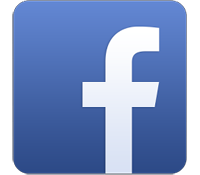
Facebook for Android improves photo support, group admin tools
Facebook has unveiled a major update to its Android app with the release of Facebook for Android 7.0. The latest version concentrates on improving photo management for users, and also gives group administrators more control from within the app itself.
For the first time, users can now include photos when posting comments using the Android app -- it’s an overdue update, as the feature has been present on the web since June 2013 and first appeared in Facebook for iOS five months ago.
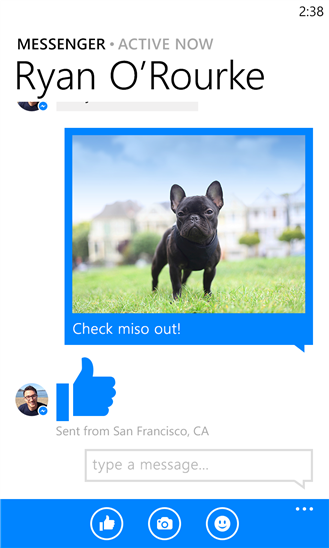
Windows Phone finally gets Facebook Messenger, 'app gap' slowly closing
Windows Phone head Joe Belfiore spoke last year of the Windows Phone app gap, claiming that it would end before the start of 2014. Unfortunately for the platform, that has not turned out to be accurate as there are still lots of great titles that are either missing from Store or offered in a half-baked version on the tiled operating system. The good news is the app gap is actually closing, albeit slowly (and not anytime soon).
Microsoft revealed at MWC 2014 Facebook Messenger will launch on Windows Phone, and the app is finally available in Store today. This is one of the most important wins for the platform, as the service is hugely popular in many markets.

Yahoo fumbles -- punts Facebook and Google from Fantasy Sports
I'll confess, I'm not a Yahoo user. Well, I do use one of its services -- Fantasy Sports. Yes, I am one of those guys that enjoys pretending I am a coach in the NFL, while sitting on my couch in my underwear, eating snacks.
However, I access Yahoo Fantasy sports with my Google credentials. The reason being, I am not a believer in Yahoo's security. After all, the recycling of email addresses is appalling. Today however, Yahoo informs me that it will no longer be allowing Google or Facebook accounts to be used to access Fantasy Sports. Instead, a Yahoo login is being forced on users.
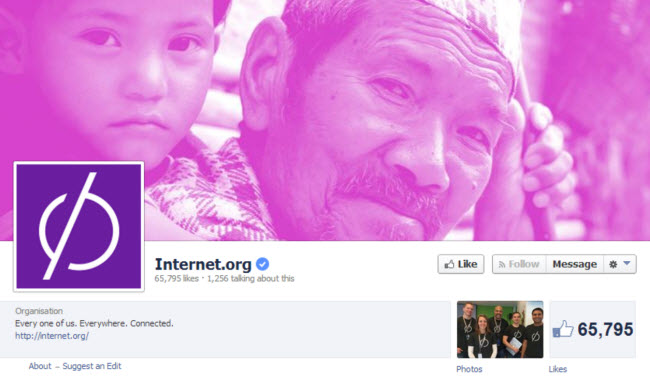
Mark Zuckerberg addresses MWC 2014 -- looks to get the world online
Mark Zuckerberg spoke at the Mobile World Congress today, saying that there needs to be some "pretty dramatic changes" to help to get more people online, pointing out that most people in the world simply do not have access to the internet. The Facebook founder has already launched Internet.org with a view to getting more people online around the globe and this is referred to as an "an on-ramp to the internet" -- he wants to get a billion people online in the next five years.
Zukerberg's goal is fairly simple. He feels that there are a number of basic services -- he mentions weather and messaging specifically -- that everyone should have access to, and this is what Internet.org provides. He admits that Facebook is not able to connect everyone without help, and suggested the possibility of working with more partners in the future. It seems as though this is a venture that Zuckerberg has taken a broad view with. At the moment it is a venture that is losing money, but this is not an example of martyrdom: "If we do something good for the world, eventually we'll find a way to benefit from it".
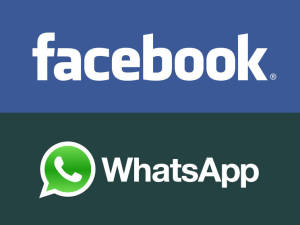
WhatsApp is the first of several big acquisitions for Facebook
If the announcement of Facebook paying $19 billion in cash and stock for WhatsApp surprised you then maybe you’d forgotten this prediction I published on January 8th:
#6 -- Facebook transforms itself (or tries to) with a huge acquisition. I wrote long ago that we’d never see Facebook in the Dow 30 Industrials. The company is awash in users and profits but it's lost the pulse of the market if it ever had it. Trying to buy its way into the Millennial melting data market Facebook offered $3 billion for Snapchat, which turned it down then rejected a $4 billion offer from Google. Google actually calculates these things, Facebook does not, so where Google will now reverse-engineer Snapchat, Facebook will panic and go back with the BIG checkbook -- $10+ billion. If not Snapchat then some other overnight success. Facebook needs to borrow a cup of sugar somewhere.

Facebook to buy WhatsApp for 19 billion dollars -- but why?
WhatsApp messenger has gained quite the following. This is kind of surprising though, as services like Google Hangouts and iMessage already exist. I've never understood the allure of the service, outside the potential for "free" messages if someone does not have an unlimited text plan. I can't imagine that is too many people -- after all, many carriers offer inexpensive unlimited texting. The most glaring negative is that the other party has to install the app too. Why not just use Google Hangouts? Or Skype? Or Facebook Messenger?
Yes, Facebook already has a messenger protocol and a dedicated messenger app. It is pretty good too, it offers read receipts and locations -- I use it quite a bit. With that said, Facebook announces it is purchasing WhatsApp for a staggering 19 billion dollars. Wait -- what!?

Mark Zuckerberg is the most generous man in the US
According to the Chronicle of Philanthropy, Facebook founder Mark Zuckerberg and his wife, Priscilla Chan, were the most generous US philanthropists last year. In 2013, the couple donated 18 million Facebook shares to the Silicon Valley Community Foundation, amounting to some $992.2 million. The Chronicle of Philanthropy put together a list of the top fifty most generous donors in 2012, ranked according to the size of individual donations.
The list is concerned only with gifts and pledges of cash and stock to non-profit organizations and it might be surprising to find that the Bill & Melinda Gates Foundation is not at the top spot -- in fact, it does not appear in the list at all. This is explained by the publication:

The most popular stories on BetaNews this past week: February 2 -- February 8
The biggest news of the week has to be the appointment of Satya Nadella as CEO at Microsoft, which brought to an end weeks of speculation and rumor. Bill Gates also stepped down as chairman. A leaked version of Windows 8.1 Update 1 appeared online giving us all a sneak peek of what we can expect to see in the upcoming release -- including context menus on the Start screen, a new enterprise mode in Internet Explorer, and different ways of working with modern apps. Ahead of this big release, it was Windows XP that was showing growth rather than Microsoft's latest operating system.
In other Microsoft news, Xbox One's first big update was revealed to be coming up on 11 February. Sony announced that it was selling its VAIO business to enable it to focus its attention on mobile devices. Business and individuals who rely on 37signals' products found that the company was not only changing its name, but also dropping all of its services apart from Basecamp. There was another blow for Bitcoin as the online currency was effectively banned in Russia.
